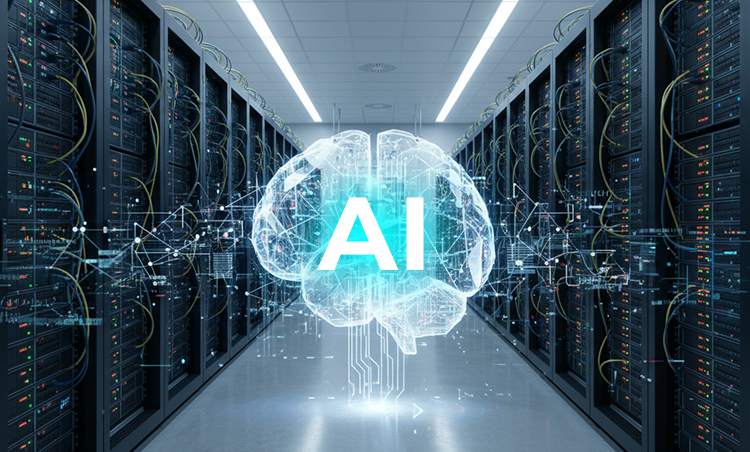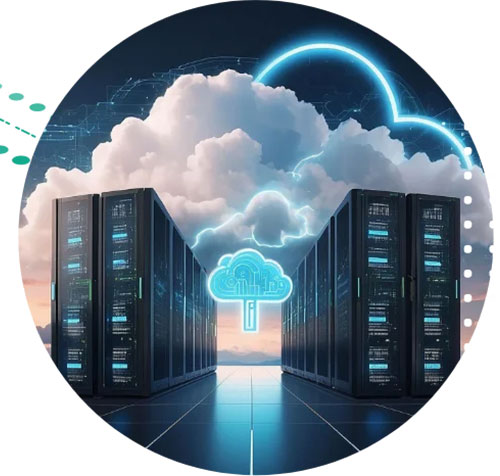Table of contents
The IT landscape is accelerating at an unprecedented rate powered by AI and cloud infrastructure. Businesses across industries are exploring the potential of hybrid IT in their digital transformation journey. Today, agility, resiliency and security are of paramount importance to businesses, as they continuously focus on innovation, scalability, operational efficiency, and growth.
By leveraging automation through AI/ML across hybrid cloud solutions, business leaders unlock a range of benefits, including embracing an automated agile, scalable, and secure platform while maintaining a cost-competitive edge amidst the changing market dynamics. Ultimately, all of this enables businesses to maximize the value of their investments, drive sustainable growth, faster go-to-market and shorter time to adapt.
However, before enterprises set out to build the right hybrid cloud ecosystem, business leaders need to address some critical key points following below:
- App stratification to adopt multi-cloud and hybrid IT
- Building the right architecture to adopt multi cloud and enabling hybrid IT
- Seamless migration milestone mapping to meet business objectives
- Visibility for right planning and productivity
- Unified platform driving cost savings, operational efficiency, and cloud governance
Understanding these key factors has a profound impact on maximizing the benefits that hybrid IT offers. Now, let’s look at the fundamentals of hybrid IT, its challenges, and how AI/ML helps in mitigating these challenges.
What constitutes Hybrid IT and makes it advantageous?
Hybrid IT refers to an IT infrastructure environment that combines elements of traditional on-premises or in-house data centers with cloud-based solutions. Hybrid cloud combines both public clouds as well as managed private clouds. It brings together the best of both worlds, allowing organizations to leverage the scalability and cost-efficiency of the public cloud for their elastic workloads and managed private cloud for fixed and regulated workloads.
Challenges while adopting multi-cloud and hybrid IT
While it has a lot to offer, hybrid IT infrastructure comes with its own set of challenges. Security & data protection, regulatory compliance, cloud sprawl, performance management, vendor lock-in, network complexity, and cost management are among the few challenges enterprises faces while adopting multi-cloud and enabling hybrid It. Let’s look at the two major challenges-
- Data Governance: As organizations navigate the complexities of managing data across both public and private cloud environments, ensuring data security and compliance becomes both difficult and paramount.
- Integration and Management: The technical challenges of integrating and managing diverse cloud platforms and technologies can be daunting. Ensuring seamless workload allocation, optimizing resource usage, and overcoming challenges in managing and analyzing large data sets for business intelligence is essential.
Mitigation plan for the challenges above
Analyzing your existing cloud infrastructure to transform it into a future-ready state that aligns with your organization’s strategic business objectives is the first step in your cloud journey. It will help you identify and address the real-time challenges while adopting multi/hybrid cloud. These challenges can be mitigated with the help of emerging technologies like Artificial Intelligence and Machine learning.
The infusion of AI and machine learning technologies takes hybrid cloud management to the next level. By creating a multiplier effect, the combination accelerates transformation with result-driven capabilities, such as intelligent automation, predictive and proactive analytics, and enhanced data processing. It enables enterprises to extract valuable insights from massive amounts of data and empower them to make data-driven decisions.
AI/ML can also optimize the management and utilization of hybrid cloud resources by dynamically allocating workloads, optimizing resource allocation, and ensuring efficient performance across environments, including predicting and automating recovery from failures. It also enables advanced security and compliance to identify and mitigate potential threats in real-time, detect anomalies and patterns, and proactively address security risks.
Enterprises can leverage AI/ML to make real-time decisions while running modern applications and derive insights across velocity of omnichannel data. An AI/ML enabled centrally managed platform on the cloud and edge locations can seamlessly sync data pipelines with multiple connectors from applications, APIs, and databases to data warehouses/lakes and back. This enables intelligent decision making with AI predictions from operations data at the edge. Also, it empowers customers with necessary architectural guidance and design.
Impact of AI/ML on FinOps
AI/ML-enriched hybrid cloud environments have a significant impact on FinOps by increasing overall productivity with substantial cost savings. AI/ML algorithms can be utilized to effectively manage and orchestrate several instances, virtual machines (VMs), containers, and legacy infrastructure components. Furthermore, natural language processing (NLP) and generative AI can be leveraged for hybrid cloud transformation, code debugging, and user experience (UX) improvement.
For instance, enterprises can identify customer segmentation by blending ML and existing techniques to deepen product expertise and marketing effectiveness. This directly drives down acquisition costs and increases retention rates.
It is important for enterprises to focus on resiliency and building security solutions
around data in rest and transit, while architecting the low-level design.
The resulting automation and decisive business intelligence helps to optimize resource allocation and cost management in the backend while enabling businesses to proactively address potential issues. AI/ML in hybrid cloud environments also influences customer focused business operations by unlocking enhanced customer experiences, improving response times, and driving higher customer satisfaction (CSAT) scores. By performing sentiment analysis, businesses can spot and prevent issues with the product experiences. This, in turn, positively impacts key performance indicators, turns reviews into actionable insights, and contributes to the organization’s success.
Sify’s Cloud Anywhere: Enhancing operational efficiency
With the changing business needs and market dynamics, enterprises must start investing in the right tools, technology, and partner that can assist them with change management, cost & risk management, and eliminating other challenges. Sify empowers organizations to navigate the complexities of multi cloud and hybrid IT environments with confidence. Our AI/ML-enabled hybrid cloud solutions provide a reliable foundation for successful digital transformation initiatives.
Sify’s Cloud Infinit is a next generation enterprise grade cloud infrastructure and managed services offering with highly available architecture and automation-led intelligent operations, empowers enterprises with business resiliency on a larger scale and minimum investment.
Here are a few strengths of Sify Cloud Anywhere:
- Unified dashboards
- Unified monitoring
- Multi-skilled support
- Integrated delivery framework
- Cloud connect with low latency
- Expertise in DC, Network, and Managed services
- Services for infrastructure assessment and consultation
Sify FinOps to fulfil cloud promise
Through its comprehensive FinOps capabilities, Sify offers industry-leading AI/ML-driven cloud management platforms and solutions that give organizations unified visibility into their cloud infrastructure. With Sify’s expertise and AI/ML-driven solutions, organizations can confidently navigate their cloud transformation, optimize costs, and streamline their operations for maximum effectiveness and success. Here’s how Sify AI/ML enabled cloud platform delivers-
- Cost Governance:
- Rightsizing of cloud resources by simplifying analytics on overall utilization, trending, and resource & capacity planning
- Enables multi-cloud coverage for enhanced cost optimization
- Financial domains for project management, budget control and chargeback enablement
- Real-time ML based observability:
- Real-time cloud waste analysis, smart startup & shutdown scheduler recommendations
- Anomaly detection to identify problems now than later
- Real-time observability of cost and performance metrics
Conclusion : Changing the game with AI/ML infused hybrid clouds
Automation holds significant potential at every stage of an organization’s cloud journey. Whether they are taking the first step towards cloud adoption, seeking to reduce bill shocks and manage multiple cloud ecosystems efficiently, or aiming to modernize legacy applications, AI/ML has a lot to offer. Reimaging your digital transformation with automation across multi cloud and hybrid IT requires a holistic approach. It involves tech adoption, process reengineering, and a cultural shift with the organization. By embracing automation, enterprises can unlock new levels of efficiency, scalability, and innovation while mitigating risks associated with modern IT landscape.
Sify provides a range of customizable solutions to cater to businesses of all sizes, whether they are embarking on comprehensive IT transformation initiatives, focused application migrations, infrastructure modernization projects, or adopting the lifts-and-shifts land-and-expand approach. With its diverse portfolio, Sify ensures that organizations can find tailored solutions that align with their specific needs and objectives, regardless of their scale or scope of transformation.
To learn more about Sify Hybrid and Multi- Cloud Services, visit here!































































